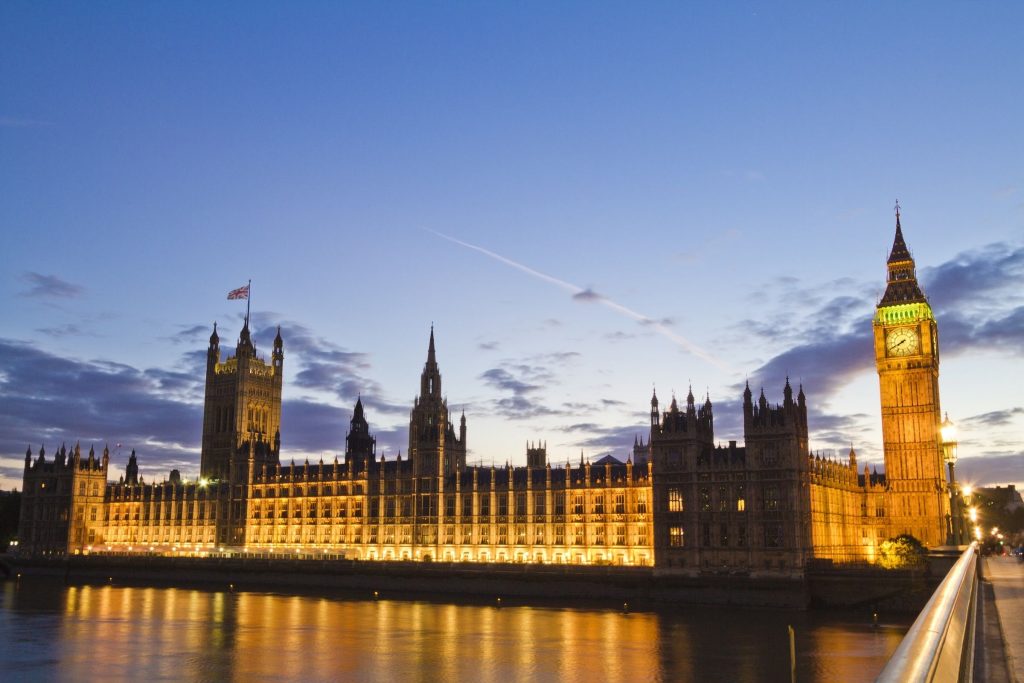As the current government stumbles from day to day with seemingly inexhaustible ability to make everything it does appear a mistake or near missed disaster, the prospect of PM Corbyn becomes more and more likely. Divided, directionless governments don’t win elections as it makes the opposition party seem less like a gamble on something new and instead a much needed change. However, even if the political winds appear to be in Mr Corbyn’s sails, there is no guarantee his success would be anything other than short lived and I explore some of the possible reasons I see for caution on the Labour side.
1. The Voters
Despite the current government’s inability to create any positive news for itself, opinion polls continue to show the Labour party as only a few percentage points ahead when people are asked who they would vote for and who they think would do a better job running the county. Although current poling would suggest a narrow win for the Labour party, if Jeremy Corbyn was to enter Downing St with a small margin of victory it could prove very difficult for him to govern in a successful fashion. Prime Ministers need to get laws passed by the House of Commons and to do that they need a majority of the Members of Parliament that make up the House to belong to their party so they can outvote the other parties and not be derailed by rebellious members of their own party voting against them. A government with a small majority over all its rivals needs to be careful what laws it proposes – anything too radical could stir up opposition from those rebellious members of the party not fond of its leader whilst proposing laws that play too safe would make a government look weak and directionless. Not too dissimilar to the current government Mr Corbyn is currently trying to replace, it is never a good political career move to offer more of the same.
2. Labour MPs
Those rebellious party members I mention above could very well be a bigger problem for a Corbyn government than opposing political parties. Corbyn is not popular with other Labour MPs who widely believe his policies too radical and stuck in the 1970s. Most Labour MPs also oppose Brexit whilst Corbyn is at best ambivalent about it. Having tried to get rid of him once already, if Corbyn was to get Labour back into government it would perhaps settle some critics but many would love the chance of getting rid of him by turning him into the weak and ineffective leader we currently see Theresa May as by refusing to support his policies.
3. The Media
The majority of Britain’s “mainstream media” by which I mean the newspapers, have historically been hostile to the Labour party as they find it easier to support a conservative party that traditionally has been seen as more of a friend of business 9and the media is big business). Corbyn has found success through his use of social media, by passing the traditional outlets and newspaper editors feel threatened by this attempt to remove their influence as well as being threatened by Labour policies of wanting to raise tax on big corporations (which again the media companies are). Corbyn can expect no friendly headlines and intense scrutiny to his every move with especial focus on irrelevant but perhaps embarrassing details of any aspect of his life imaginable.
4. Big Business
Similar to the media but more focused on the economic wellbeing of the country under a Corbyn government. Labour policy to remove certain businesses such as energy and rail travel from their current private owners and place them under direct government control to be run as services and not for profit is seen as a threat not just to these particular businesses but to the entire way (big) business is done in Britain. Similar governments that have attempted such policies in other countries have been in turn threatened by investment businesses such as banks and hedge funds who state they will not invest in a country that they regard as unsafe for their funds. This then having the knock on effect of preventing business from expanding or even setting up in the first place and costing jobs which is where any government will start to feel the painful effects. A Corbyn government true to its current word would face such hostility from international investors in Britain and if that caused unemployment or bankruptcy to rise there is only one likely outcome for a government over seeing such a situation and it isn’t good.
5. Events
Previous Prime Minister Harold Macmillan when asked what he feared most about being Prime Minister replied “events dear boy events”. By which he meant large scale global events beyond the control of any one person (even a Prime Minister). The word is a dense web of interconnected and inter-reliant global exchange in the fields of business, culture, politics, art and sport to name but a few ways we can all influence and be influences by events on the other side of the world. As a lifelong campaigner for the end of nuclear weapons in Britain, Corbyn as Prime Minister could be particularly vulnerable to speculation over his suitability to the top job if during his watch there was to be a large up in tensions between nations in possession of nuclear weapons. Given the instability of the leaders of North Korea and the USA (to pick too nations at random) and the likelihood of their both still being in power if Corbyn was to become PM it does not take much of a leap of imagination to picture the possibility of this.




